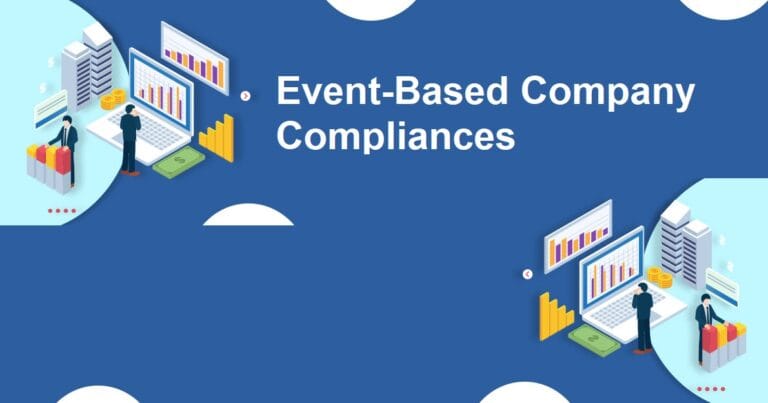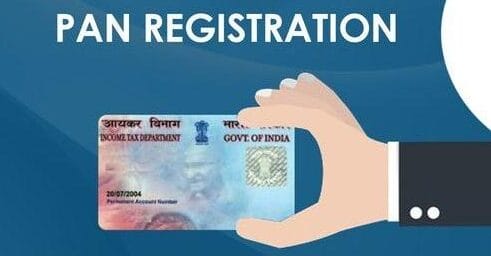A Nidhi Company is a type of non-banking financial institution (NBFC) in India that operates primarily for the benefit of its members, who contribute funds to the company. Here’s an overview of what a Nidhi Company entails:
Characteristics of a Nidhi Company
- Member-Based: Nidhi Companies are mutual benefit societies, where membership is limited to individuals and governed by strict rules laid down under the Companies Act, 2013.
- Core Objective: The primary objective is to cultivate the habit of thrift and savings among its members, and to lend funds to its members only for their mutual benefit.
- Mutual Benefit: Operates for the mutual benefit of its members, who contribute savings and receive loans at reasonable interest rates.
- Limited Liability: Members enjoy limited liability, meaning their personal assets are protected in case of company debts or liabilities.
- Minimum Membership: Must have at least 200 members within a year of incorporation.
- Ownership and Control: Controlled and managed by its members who elect a board of directors from among themselves.
- Regulation: Governed by the Ministry of Corporate Affairs and regulated under the Nidhi Rules, 2014, which are specific provisions under Section 406 of the Companies Act, 2013.
- Financial Transparency: Required to maintain proper accounts and have them audited annually.
- Legal Entity: Recognized as a separate legal entity from its members, capable of owning assets, entering into contracts, and suing or being sued in its own name.
Process of Incorporating a Nidhi Company
- Name Reservation: Choose a unique name for the Nidhi Company and obtain approval from the Registrar of Companies (ROC).
- Memorandum and Articles: Draft the Memorandum of Association (MOA) and Articles of Association (AOA), outlining the objectives and operational guidelines of the company.
- Director Identification Number (DIN): Obtain DIN for the proposed director(s) through an online application.
- Digital Signature Certificate (DSC): Obtain DSC for the proposed director(s) to electronically sign documents.
- Incorporation Documents: File the incorporation documents, MOA, AOA, and forms prescribed under the Companies Act, 2013, with the ROC.
- Certificate of Incorporation: Upon verification of documents and satisfaction of requirements, the ROC issues a Certificate of Incorporation, officially establishing the Nidhi Company.
- Post-Incorporation Formalities: Complete post-incorporation formalities such as opening a bank account, issuing share certificates (if applicable), and complying with audit and tax requirements.
Advantages of a Nidhi Company
- Savings and Loans: Promotes thrift and savings habits among members while providing access to low-interest loans.
- Limited Liability: Provides members with limited liability protection.
- Community Focus: Supports community development by pooling resources and facilitating financial assistance among members.
- Financial Inclusion: Extends financial services to small savers and borrowers in rural and semi-urban areas.
Disadvantages of a Nidhi Company
- Limited Scope: Restricted to specific activities related to savings and loans among its members.
- Operational Challenges: Requires active participation and compliance with regulatory requirements under the Companies Act, 2013.
- Public Perception: May face skepticism or scrutiny due to association with financial transactions and mutual benefits.
A Nidhi Company serves as a financial institution aimed at promoting thrift, savings habits, and financial inclusion among its members. It offers benefits such as limited liability, community-focused financial services, and mutual benefit lending. However, founders and members should carefully navigate the regulatory requirements, operational challenges, and public perception associated with establishing and managing a Nidhi Company. Proper planning, compliance with legal norms, and effective governance are crucial for ensuring the sustainability and success of such entities in promoting financial stability and community development.
At Ujjwal Gupta & Co
We, at Ujjwal Gupta & Co, are dedicated to delivering personalized, high-quality solutions tailored to meet your financial and business needs. With our team of professionals and a client-first approach, we ensure that every challenge is met with expert guidance and strategic insight.
We are dedicated to ensuring your business’s success by providing best service practice available in the industry and that too at a cost effective pricing. Our team of experts is excited to work with you and provide the support you need to thrive in the Indian business landscape.
Our only motive is to create Value for Our Clients and accordingly, have a Client Value System at our Office.
So, let us help you navigate the complexities of finance and compliance, empowering you to focus on what matters most — growing your business. Get in touch today, and take the first step towards financial peace of mind.
A Nidhi Company is a type of Non-Banking Financial Company (NBFC) recognized under Section 406 of the Companies Act, 2013, with the primary objective of cultivating the habit of savings and thrift among its members. Nidhi Companies are involved in receiving deposits from and lending to their members only, and they operate within the ambit of mutual benefit.
A Nidhi Company can be formed by seven or more individuals, with three of them acting as directors. The company must have at least 200 members within one year of incorporation to continue operating as a Nidhi Company.
The primary purpose of a Nidhi Company is to:
- Encourage saving habits among its members.
- Facilitate lending and borrowing between members at reasonable interest rates.
- Promote financial security and mutual benefits for its members.
- Membership-based: Nidhi Companies can only accept deposits and lend money to their own members, unlike other NBFCs that can deal with the general public.
- Regulation: While NBFCs are regulated by the Reserve Bank of India (RBI), Nidhi Companies are regulated by the Ministry of Corporate Affairs (MCA) and exempt from the RBI’s stringent rules governing other NBFCs.
- Limited operations: Nidhi Companies are not allowed to engage in activities like leasing, hire-purchase, insurance, or securities trading.
- Minimum 7 members and 3 directors are required at the time of incorporation.
- Minimum capital requirement of ₹10 lakhs.
- The company must have Nidhi Limited as part of its name.
- The company must file for registration with the Registrar of Companies (RoC).
- After incorporation, the company has to ensure it reaches 200 members and complies with other criteria within 12 months.
Nidhi Companies are prohibited from:
- Engaging in the business of chit funds, leasing, insurance, or securities trading.
- Accepting deposits from or lending to non-members.
- Advertise for deposits.
- Open current accounts for their members.
- Acquire another company or undertake any business other than borrowing or lending between members.
Compliance requirements include:
- Filing annual returns and financial statements with the Registrar of Companies (RoC).
- Conducting statutory audits of the company’s financial statements.
- Holding Annual General Meetings (AGM).
- Maintaining a Net Owned Fund (NOF) to deposit ratio of 1:20, i.e., the deposits accepted should not exceed 20 times the company’s NOF.
- Filing NDH-1, NDH-2, and NDH-3 forms with RoC for membership, deposits, and financial performance.
At the time of incorporation, a Nidhi Company must have a minimum paid-up equity share capital of ₹10 lakhs. This is the initial investment to start the company. Additionally, the company must maintain at least ₹5 lakhs in Net Owned Funds (NOF) after incorporation.
Yes, a Nidhi Company can declare dividends to its members on the profits earned. However, the dividends are usually moderate, as Nidhi Companies are not profit-centric but focused on mutual benefits for members through affordable credit.
The benefits of forming a Nidhi Company include:
- Limited regulation: Nidhi Companies are not subject to strict RBI regulations applicable to other NBFCs, making it easier to operate.
- Encouraging savings: Nidhi Companies promote savings and financial discipline among members.
- Mutual benefit: The profits generated from the company’s activities are used for the benefit of the members in the form of lower interest rates on loans and better returns on deposits.
- Limited liability: Members and directors enjoy limited liability protection.
Why Choose UGC?

Client Centric Approach
Client is the key driver of our service offerings. Our approach to service offerings is based on a client centric and customized approach. Our specialized teams are a mix of technical and industry experience in order to serve clientele for their specific needs.

Team Work
We have built high performing teams supported by strong work ethic. Our team is a mix of experts, professionals and support staff from technical and varied academic, social and ethnic backgrounds. We believe diversification plays a vital role in motivating the team.

Quick Turnaround
We always endeavour for a quick turnaround time to serve our clientele. We are supported by an experienced and client focussed support teams to offer timely services to our clientele. In case of any business exigencies and time sensitive service requirements, you can always count on us.

Open Communications
We believe that open communication is the core principle in order to demonstrate trust, build long lasting and valuable relationships with clientele. We are committed to ensuring transparency in communication, service offerings and delivery. We provide professional services to our clients.

Client Value System
We value for the Client time and thus, we offer services that are value for money. Quality professional services are provided to our clients, so that they are able to achieve their desired results. We are a quality trademark in the industry and thus, our clients count on us always.

Quality in Delivering Work
Our service offerings are driven by quality and reviews at every level. We strive to provide a qualitative and value-added delivery to our clientele. At all times, we endeavour to provide exceptional client service by meeting client expectations and driving client satisfaction.



























